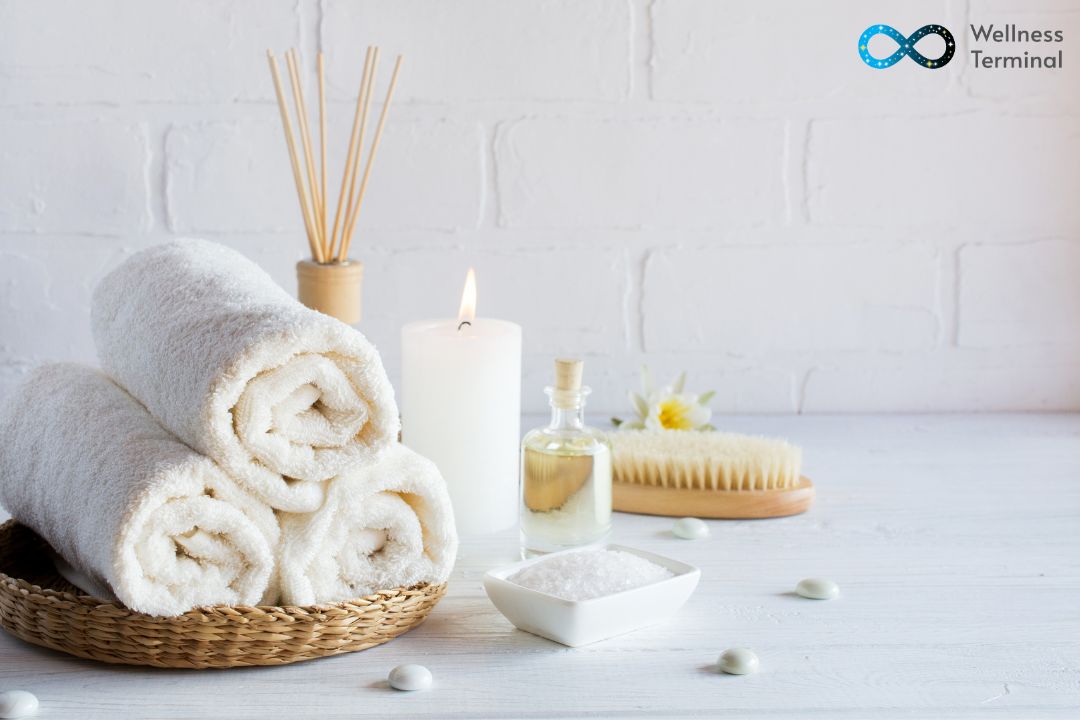Have you ever been drawn to a particular scent and felt instantly uplifted or relaxed? The power of essential oils in aromatherapy is not just a passing fad – it’s a centuries-old practice that has been used for its therapeutic benefits. Aromatherapy can improve your physical and mental health in many ways, and essential oils are a key component. Let’s explore the healing power of essential oils and how they can help you feel your best.
Essential oils are derived from plants and contain the essence, or aroma, of the plant. These oils can be extracted through distillation or cold pressing and are highly concentrated. Each oil has its own unique scent and therapeutic properties, and they can be used in a variety of ways, including inhalation, topical application, and even ingestion (although this should only be done under the guidance of a qualified practitioner).
One of the most popular ways to use essential oils is through inhalation. Aromatherapy diffusers and sprays can be used to disperse the oils into the air, allowing you to breathe in the scent and experience its benefits. Inhalation can have a powerful effect on the brain and nervous system, promoting relaxation, reducing anxiety and depression, and improving sleep.
For example, lavender oil is well-known for its calming and relaxing properties. It has been shown to reduce anxiety and promote better sleep, making it a popular choice for bedtime diffusing or sprays. Peppermint oil, on the other hand, is invigorating and can help improve focus and concentration.

In addition to inhalation, essential oils can also be applied topically to the skin. However, it’s important to dilute the oil with a carrier oil, such as coconut or jojoba oil, to avoid skin irritation. Topical applications can help with pain relief, reducing inflammation, and improving skin health.
For instance, tea tree oil is a popular choice for treating acne-prone skin due to its anti-inflammatory and antibacterial properties. It can help reduce the appearance of blemishes and improve overall skin health. Eucalyptus oil is often used for its pain-relieving properties and can be helpful for sore muscles and joints.
In addition to their physical benefits, essential oils can also have a powerful impact on mental health. The scent of certain oils can stimulate the release of neurotransmitters in the brain, such as serotonin and dopamine, which can improve mood and reduce feelings of stress and anxiety.
For example, citrus oils like lemon and orange can have an uplifting effect, while frankincense oil has been shown to promote feelings of relaxation and tranquility. Some oils, such as bergamot and ylang-ylang, have been shown to have an antidepressant effect, making them a popular choice for those struggling with depression or anxiety.
Incorporating essential oils into your self-care routine can be a simple and effective way to improve your physical and mental health. Whether you choose to diffuse them in your home, add them to your skincare routine, or use them in massage or other body treatments, essential oils can provide a natural and holistic approach to wellness.
In conclusion, essential oils have been used for centuries for their therapeutic benefits and can be a valuable addition to your wellness routine. It’s important to note that while essential oils can be beneficial for many people, they should not be used as a replacement for medical treatment. If you have a medical condition, it’s always best to consult with your healthcare provider before using essential oils.

